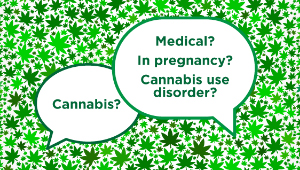Jennifer F. Bobb, PhD
Biography
Jennifer Bobb, PhD, aims to apply rigorous statistical methods to address important problems in public health. She is interested in statistical issues that occur when data that were not originally collected for research purposes, such as administrative claims data or electronic health records (EHRs), are used for addressing scientific questions relevant to clinical practice and health policy.
At Kaiser Permanente Washington Health Research Institute (KPWHRI), Dr. Bobb collaborates with scientists across a broad range of research areas, including mental and behavioral health and social determinants of health. As an investigator with the Health Care Systems Addictions Research Network, she provides statistical leadership on pragmatic clinical trials at Kaiser Permanente Washington and other health systems. These include:
- A pragmatic encouragement trial evaluating a collaborative care model to treat patients with opioid use disorder and depression, funded by the National Institute of Mental Health as part of the Helping to End Addiction Long-term (HEAL) Initiative
- A cluster-randomized implementation trial conducted in 6 diverse health systems to evaluate a program for increasing medication treatment for opioid use disorders within primary care settings, funded by the National Institute of Drug Abuse
She has also developed statistical guidance to address methodological challenges introduced by pragmatic trials that leverage EHR data to define study eligibility and outcomes.
With expertise in environmental biostatistics, Dr. Bobb has led large-scale epidemiological investigations on the health effects of exposure to extreme heat and air pollution. She developed flexible modeling approaches for estimating the health effects of multi-pollutant mixtures that broadly apply to settings where large numbers of exposures may interact or have complex relationships with health, along with publicly available software implementing these methods. In recent work, she is collaborating on the Moving to Health study, which explores whether changes in the built environment, such as access to healthy foods and walkability, affect long-term weight and diabetes management. Work on this study spurred new methodology addressing statistical complexities of spatial confounding and time-varying health impacts.
Dr. Bobb is an affiliate associate professor in biostatistics at the University of Washington and an associate editor of the journal Biostatistics. She serves on the Committee for Funded Research of the American Statistical Association (ASA) and was elected the 2024 Chair of the ASA’s Biometrics Section. She has also served as grant reviewer for federal funding agencies and taught short courses on statistical methods for EHR data at national meetings. Before joining KPWHRI, Dr. Bobb completed her PhD in biostatistics at the Johns Hopkins Bloomberg School of Public Health in 2012, followed by a postdoctoral fellowship at the Harvard T.H. Chan School of Public Health.
SELECT PUBLICATIONS
Bobb JF, Cruz MF, Mooney SJ, Drewnowski A, Arterburn D, Cook AJ (2022). Accounting for spatial confounding in epidemiological studies of individual-level exposures: an exposure penalized spline approach. Journal of the Royal Statistical Society, Series A. 185(3):1271–1293.
Bobb JF, Qiu H, Matthews AG, McCormack J, Bradley KA (2020). Addressing identification bias in the design and analysis of cluster-randomized pragmatic trials: a case study. Trials. 21(1):289.
∗ Included in collection on The future of pragmatic trials
Bobb JF, Valeri L, Claus Henn B, Christiani DC, Wright RO, Mazumdar M, Godleski JJ, Coull BA (2015). Bayesian kernel machine regression for estimating the health effects of multi-pollutant mixtures. Biostatistics. 16(3):493–508.
Bobb JF, Obermeyer Z, Wang Y, Dominici F (2014). Cause-specific risk of hospital admission related to extreme heat in older adults. JAMA. 312(24):2659–2667.
∗ Recognized as one of the Papers of the Year by the National Institute of Environmental Health Sciences
Research interests and experience
-
Biostatistics
Bayesian methods; analysis of observational data; pragmatic trial design and analysis; analysis of spatial-temporal data
Health Services & Economics
Biostatistics; implementation science
-
Mental Health
Biostatistics; behavioral health; alcohol and substance use disorders
Social Determinants of Health
Biostatistics; built environment
-
Environmental Health
Health effects of air pollution, extreme weather events; statistical methods for complex environmental mixtures
-
Addictions
Prevention and treatment
Sparc trial tools
Resources for behavioral health integration
The SPARC trial successfully implemented behavioral health care into primary care. On our website, you can access tools for behavioral health integration, as well as frequently asked questions and publications.
Recent publications
Hallgren KA, Jack HE, Oliver M, Berger D, Bobb JF, Kivlahan DR, Bradley KA. Changes in alcohol consumption reported on routine healthcare screenings are associated with changes in depression symptoms. Alcohol (Hanover). 2023;47(6):1132-1142. doi: 10.1111/acer.15075. Epub 2023 Jun 16. PubMed
Lee AK, Bobb JF, Richards JE, Achtmeyer CE, Ludman E, Oliver M, Caldeiro RM, Parrish R, Lozano PM, Lapham GT, Williams EC, Glass JE, Bradley KA. Integrating alcohol-related prevention and treatment into primary care: A cluster randomized implementation trial. JAMA Intern Med. 2023 Apr 1;183(4):e227083. doi: 10.1001/jamainternmed.2022.7083. PubMed
Jack HE, Oliver MM, Berger DB, Bobb JF, Bradley KA, Hallgren KA. Association between clinical measures of unhealthy alcohol use and subsequent year hospital admissions in a primary care population. Drug Alcohol Depend. 2023 Apr 1;245:109821. doi: 10.1016/j.drugalcdep.2023.109821. Epub 2023 Feb 24. PubMed
DeBar LL, Bushey MA, Kroenke K, Bobb JF, Schoenbaum M, Thompson EE, Justice M, Zatzick D, Hamilton LK, McMullen CK, Hallgren KA, Benes LL, Forman DP, Caldeiro RM, Brown RP, Campbell NL, Anderson ML, Son S, Haggstrom DA, Whiteside L, Schleyer TKL, Bradley KA. A patient-centered nurse-supported primary care-based collaborative care program to treat opioid use disorder and depression: Design and protocol for the MI-CARE randomized controlled trial. Contemp Clin Trials. 2023 Apr;127:107124. doi: 10.1016/j.cct.2023.107124. [Epub ahead of print2023 Feb 18]. PubMed
Glass JE, Dorsey CN, Beatty T, Bobb JF, Wong ES, Palazzo L, King D, Mogk J, Stefanik-Guizlo K, Idu A, Key D, Fortney JC, Thomas R, McWethy AG, Caldeiro RM, Bradley KA. Study protocol for a factorial-randomized controlled trial evaluating the implementation, costs, effectiveness, and sustainment of digital therapeutics for substance use disorder in primary care (DIGITS Trial). Implement Sci. 2023 Feb 1;18(1):3. doi: 10.1186/s13012-022-01258-9. PubMed
Wartko PD, Qiu H, Idu AE, Yu O, McCormack J, Matthews AG, Bobb JF, Saxon AJ, Campbell CI, Liu D, Braciszewski JM, Murphy SM, Burganowski RP, Murphy MT, Horigian VE, Hamilton LK, Lee AK, Boudreau DM, Bradley KA. Baseline representativeness of patients in clinics enrolled in the PRimary care Opioid Use Disorders treatment (PROUD) trial: comparison of trial and non-trial clinics in the same health systems. BMC Health Serv Res. 2022 Dec 29;22(1):1593. doi: 10.1186/s12913-022-08915-1. PubMed
Research

Neighborhood density connected to changes in body mass index for children
Study uses geographic data to track change over time.
Healthy findings blog

How Jennifer Bobb solves statistical problems to improve health care
Her expertise helps improve outcomes for people with substance use disorders.
Research

Increasing opioid use disorder treatment in primary care
A trial led by KPWHRI researchers found that adding nurse care managers helped more people get needed treatment.
Research

Better care for patients who drink alcohol
A new primary care approach improves alcohol-related preventive care as well as care for alcohol use disorder.
Research roundup

What's new in cannabis use research?
Use in pregnancy and screening in primary care studied by KPWHRI’s Kiel, Matson, and Lapham.
New findings

Research roundup on natural language processing and machine learning
Using doctor's notes to learn about drug reactions, dementia, and cannabis use.



